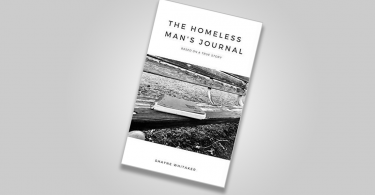A Little Life, Yanagihara’s second novel, came from quiet beginnings to general critical acclaim, placed on the shortlists for the 2015 Man Booker Prize and the 2016 Baileys Prize. It is not surprising; it is a weighty tour de force which explores much of the best and worst of humanity.
The novel bases itself at the beginning around a group of four friends in college – handsome, reserved Willem, spoilt JB, sheltered, insecure Malcolm, and enigmatic Jude. Their adolescent confusion and early friendship is explored with a light hand, and Yanagihara’s understated observations about life as a 20-something in New York are delightful. Gradually, as the novel develops, it is Jude who becomes the central character, though the lives of all four are followed throughout as their struggles with adulthood, family, careers, race, sexuality and mental health are developed. Though the main characters are portrayed unflinchingly realistically – and can be deeply unsympathetic at times, particularly Malcolm and JB – the reader feels at all times deeply invested in their lives, as with one’s own college friends. By carefully avoiding linking the novel into any particular time period, the author has achieved a balance of nostalgia and present relevance which makes this book readable for adults of any age.
Jude, whose physical difficulties are presented openly from the start of the novel, has a hidden past, which forms the central plot of the novel as it unravels gently in parallel to the aging of the original four friends. His sense of self, guilt, and rejection of his own strengths leave the reader, along with his friends, desperately hoping for his redemption but without any visible way to achieve it. For this reason, the length of the book does not feel indulgent (though at 720 pages, it’s not a quick read) because the details are so perfectly written and because reader is drawn into the horror and darkness of the later parts of the novel so gradually that the graphic, intense trauma is not often shocking. The ending, which is partly foreshadowed but which is preceded by a heart-wrenching twist, has a sense of inevitability and finality which is deeply satisfying despite its emotional complexity.
Reading @alittlelifebook by @hanyayangihara and cannot put it down @MacmillanAus pic.twitter.com/qBZITNdylQ
— Juliet Sulejmani (@thejulietreport) July 6, 2016
A Little Life is neither entirely pessimistic nor unbelievably idealistic, and has insights into humanity which will surely make this novel a classic for a long time. Yanagihara does not shy away from her subject matter, and indeed, writing about the central themes of trauma and isolation might feel trite or dismissive if she did fail to show the full impact they can have. She treads the fine line between a kind of voyeuristic observation of illness and a cathartic representation of issues and scenes which most authors would avoid. It is not a work to be read lightly or in the expectation of pure entertainment – it left me emotionally raw and with a sense of mourning. Nevertheless, I expect to re-read and revisit the lives of the characters who were so sensitively and humanly depicted that they feel like personal acquaintances. I would not hesitate to recommend her writing style, plot or characterisation, but these very strengths are what make the novel’s emotional power so forceful that I would hand it over with trigger warnings.
Have you read the book? What did you think? Let us know in the comments below!








